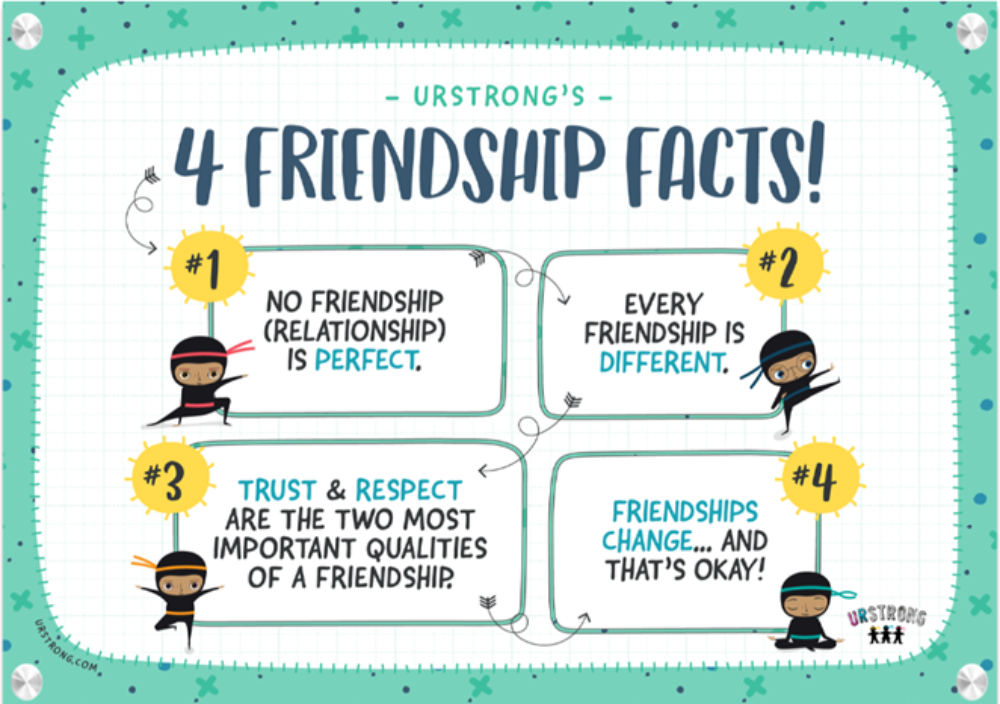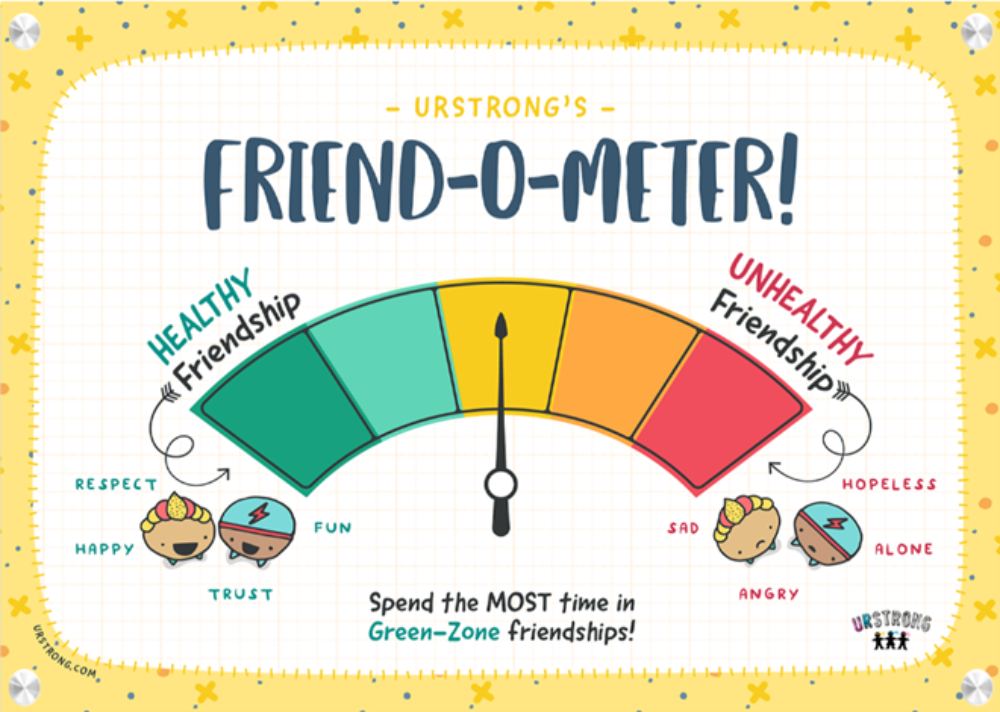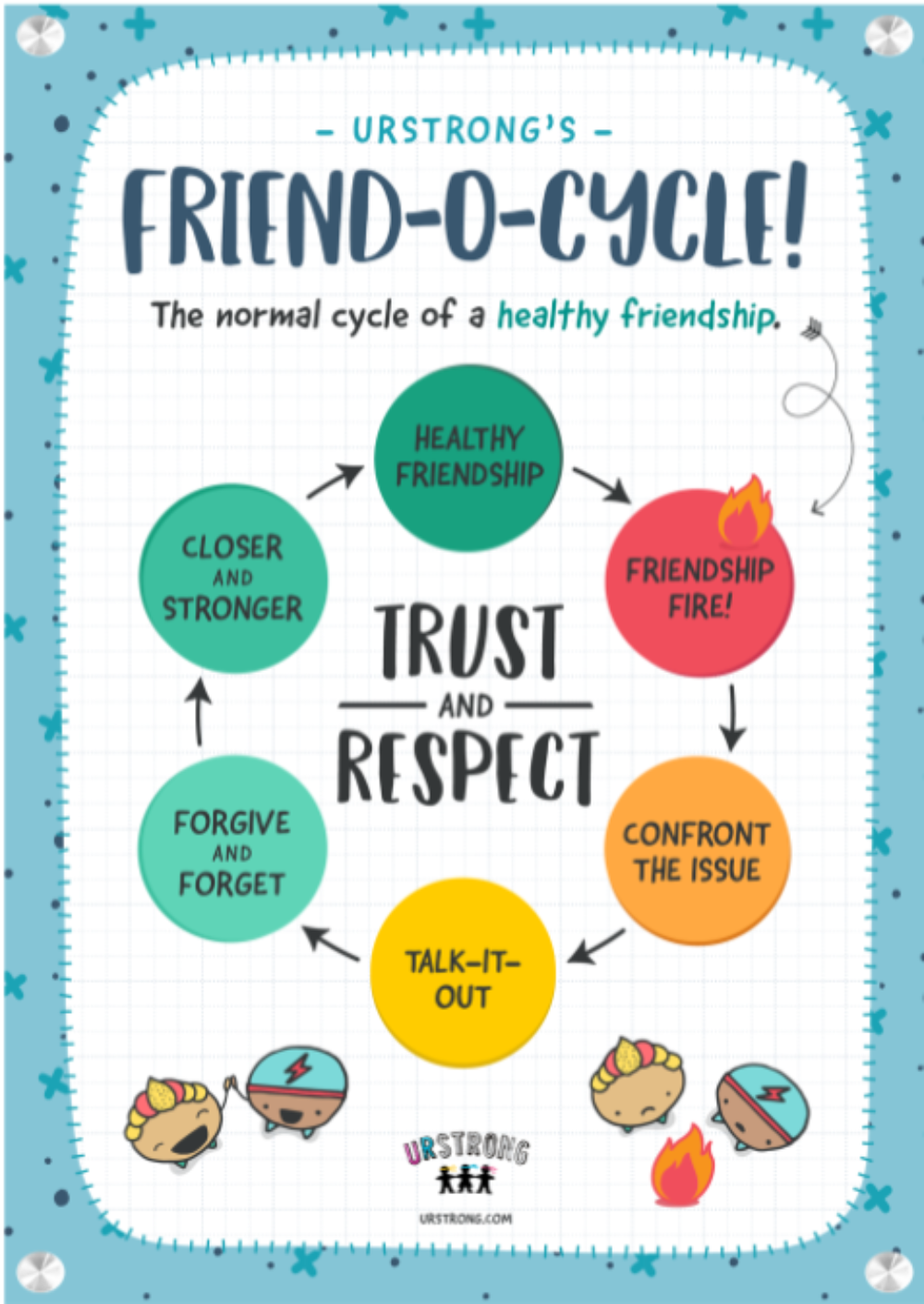Cultivating healthy friendships in the Junior School
Throughout this year, both Junior Schools have been teaching a new program called ‘Friendology 101’. Aimed at equipping children with practical skills to build and maintain healthy friendships, the program also teaches how to navigate the tricky space of conflict. Conflict management can be hard and many children (and adults) can struggle to manage this when it arises, especially between friends.
It has been wonderful to see our children developing their skills this year!
On many occasions, students have excitedly approached me to announce how they have "put out their ‘Friendship Fire’" and that their friendship is healthy again. The children are proud that they have resolved the problems all by themselves, using the skills they have learnt.
For those of you who are wondering what on earth a 'Friendship Fire' is, let me introduce you to a few of the basic understandings that are taught through the program.
We start with the 4 Friendship Facts
Through these four facts, children learn to have healthy expectations of their friends and relationships. Aside from Jesus, no one is perfect! This means we can’t expect our friendships to be perfect either. We all make mistakes. Understanding this, allows us to keep a healthy expectation of how our friendships will look and feel.
The Friend-O-Meter
This is a great visual learning tool to help us think about and describe how their friendship is feeling. In order to be a healthy friend to others, we need to understand what a healthy friendship looks like, sounds like and feels like. It’s important to point out here, that all friendships sometimes have moments when they feel unhealthy. It’s completely normal! This is usually because there has been a Friendship Fire.
A Friendship Fire describes when there is a disagreement, misunderstanding or someone is upset by the actions of another. In these moments, our friendship feels unhealthy and we need to do something to bring our friendship back into the healthy zone.
Children have been taught some very simple and practical steps to address Friendship Fires when they occur in their relationships.
The Friend-O-Cycle
Using the Friend-O-Cycle, children understand the importance of talking to their friend about the problem, listening to their side of the story, acknowledging the feelings felt by both sides and making a plan that will help things to work better next time. Notice that trust and respect are at the centre? This is because these two valuable qualities must underpin the way we have these tricky conversations.
It has been incredible to hear some of the amazing restorative conversations that even our very young children have had, in resolving their Friendship Fires. As adults, we take on a coaching role, helping the children as they may need some guidance, but ultimately empowering them to be able to practice and implement these valuable life skills with growing independence.
As a part of our school membership, parents are able to access a free Parent Membership to the website. There are lots of helpful tools and articles for parents to access, that will help you as you coach and support your children through building their own healthy friendships. If you haven’t already accessed this, I would highly encourage you to have a look!



